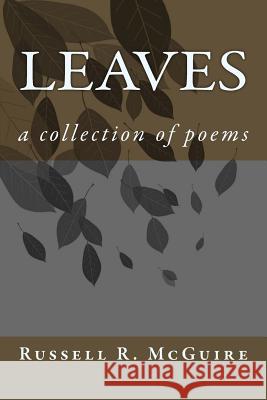Leaves: a collection of poems » książka
Leaves: a collection of poems
ISBN-13: 9781519398598 / Angielski / Miękka / 2015 / 166 str.
"Leaves -a collection of poems"- is the third book by the author. His other titles include "Nebulae Cocktails - love songs of epiphanies" and "The Desert Stones - a poem." The title poem is about aging as transformation: "I'm shedding my old life leaf by leaf," the author says, "Limbs, down turned with Winter, growing light again. One by one the pages are not turned, but torn and tossed aside." As the branches are soon bare, the author extends the metaphor: "My limbs are reaching star to star, to find in darkness lush with loss the hope of seeds beneath the snow." While mostly written in free verse, there is some use of rhyme and internal rhyme: "Again, I'm letting go. It is a familiar sorrow." The theme of transformation is elaborated on in the poem, "The Return of Owls" - "Beneath swiftly racing puffs of sky, stark truth forms as feathers, shifting from earth's still air..." The poem "Origami" explores the author's relationship with his father and his father's generation, often called the "Greatest Generation." He writes, "I grew up in a world of one legged men, so full of subtext and back-story, you'd think, from their silence, they were anything but the glorious conquerors of boundless evil." There are short poems like "Skin - for Kimberly" where the author tells is daughter, "You dance in your new skin Cosmic causes to begin There you are, starting the whole damn thing all over again." The line lengths are short and mostly unmetered. This is a very accessible collection of poems where unexpected imagery and powerful metaphor are the author's strength. That power and playfulness with language is showcased here in poems like "Somatethesia": "Between what we know and what we need, the yawning maw opens a slip stream of lust. And before we know it all we know is need." There are also several selections focused on political themes, including: "The Sons of Kings," "The Rich and Why We Hate Them" and "Ruled By Fear," which includes the a reference to those who would rule by fear mongering: "Fear bewilders and betrays the honest acts of honest men who struggle daily to grasp mercy's outstretched hand." So "Leaves" is an ecclectic mix of thoughtful poems about love and life and has some surprises too. There is "The Man Who Couldn't Own Things" about a character who intent on not accumulating material things discovers "what's his was yours, what's yours is yours, it was a one-way street of losing." And the fanciful, "Ezra Arizona" about a fictional place where the toads speak and one could get lost if not careful. But also there is the author's noted touch with love poems like "Your Leaving": "Come to me, and if my arms around you tightly tell you not to fear, What is lost in that? Let's nourish ourselves on what is lost and broken; for what use is tenderness if not to heal?" "Leaves" is an enjoyable tour through a mind known for invention and exploration.
Zawartość książki może nie spełniać oczekiwań – reklamacje nie obejmują treści, która mogła nie być redakcyjnie ani merytorycznie opracowana.











